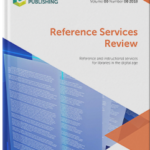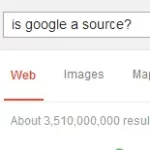In academia, peer review is the process that is supposed to separate the trustworthy from the unreliable, the conclusive from the flawed, the groundbreaking from the mundane.
 Before a work can be published, a rigorous review by a carefully selected group of scholars in the same field is necessary in order to ensure a high level of quality and originality.
Before a work can be published, a rigorous review by a carefully selected group of scholars in the same field is necessary in order to ensure a high level of quality and originality.
As a general concept, though, peer review is simply defined as “a process by which something proposed for publication is evaluated by a group of experts in the appropriate field.”
And this reminds me a lot about how the blogosphere operates.
Only today, where we publish at the click of a button, the “peer review” process occurs afterward.
In an age where social networking sites, especially Twitter, are incredibly popular places for bloggers to connect with others in their niche, most of us are part of a large network where we share content, recommend articles, offer suggestions and even engage in heated debates.
Every time we write a new post, we promote it through these channels. This is where the initial review begins: the first group of readers makes a judgment on whether or not a post is persuasive, well-reasoned and interesting enough to pass on to more people.
If not, the post is essentially “rejected” and will slip into oblivion. But if so, these people will retweet it, share it on Facebook, or mention and link to it on their own blog.
The potential for quick spreading of information through social media is staggering, and since these bloggers are connected to others in their niche, a popular post will be read by many thousands, including authority bloggers, who are certainly “experts in the appropriate field.”
This much larger group of readers then completes the “review”: they inspect the post critically and make suggestions, pose questions and point out its strengths in the comments section. The author frequently responds and carries on a dialogue with this team of “peer reviewers,” offering further clarification or recognizing a particular flaw.
Aside from being exceptionally fast, another advantage of this type of system is that it is completely transparent: any web surfer stumbling on the post can see the full transcript; it’s not shrouded in secrecy by some elite group.
Some academics have even begun to realize the merits of this type of model. The Shakespeare Quarterly recently experimented with a web-based evaluation approach in one of its issues, as the NY Times reported:
“Instead of relying on a few experts selected by leading publications, they advocate using the Internet to expose scholarly thinking to the swift collective judgment of a much broader interested audience.”
It will be interesting to see if this type of trend continues.
photo by katagaci



This is a very interesting concept. I think it would work for specialized topics that attract only interested readers who know something about the subject matter. Otherwise you run the risk of “peer review” turning into one of the “heated debates” you mention … so many of these debates devolve into mindless drivel, personal attacks, and reaction-baiting. It’s gotten to the point that when I read a newspaper or magazine article online, especially about something that’s controversial, I don’t even look at the comments; I know what I’m going to find there … people (almost always anonymous) on both sides of the issue, spewing hate and vitriol, making gross generalizations of those on the other side. I think for true peer review to work in the manner you describe, there can’t be anonymity; responders have to have some accountability to stand behind their opinions.
Good points; the comment sections of many news sites can indeed get downright depressing. But since these are usually reactions to the politics behind the news, not critiques of the actual writing, it’s kind of a different category. But definitely something to consider. For blogs in targeted niches, anonymity is very rare, as people almost always use their real names and even link to their own websites, so there is a high level of accountability.
Great read!
I don’t consider myself a Nobel Prize worthy writer and usually I publish my articles without any prior professional review to tell me if it’s worthy to be read, it’s always just hit or miss; I kind of like it that way. You will find that most traffic to your blog that is actually interested enough to read will not go the extra mile to tell you how to write it better, but instead tell you about the topic the article was written about. It really depends on your niche as a writer and the whole atmosphere revolving what you write about.
Thanks! That’s a really good point. It’s not solely a review of the work you’ve created but also a collaborative process in which other knowledgeable people add to your points.